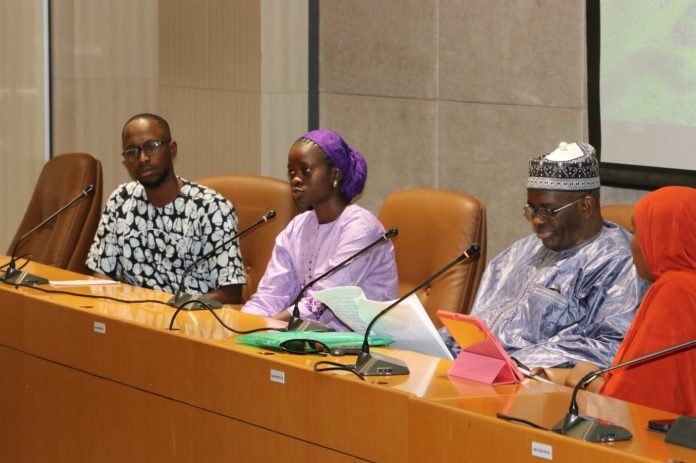By Yankuba Jallow with New Narratives
Concern is rising among civil society actors over growing confusion between reparations and inheritance in The Gambia’s transitional justice process. As the government begins implementing reparations to victims of former President Yahya Jammeh’s regime, activists are urging stronger protections for the intended beneficiaries—especially widows and children—who are facing increasing pressure from relatives claiming entitlement to the funds.
The Truth, Reconciliation and Reparations Commission (TRRC), which concluded its mandate in 2021, had issued interim reparations to some survivors and victims’ families. However, several cases emerged where these payments sparked internal family conflicts. Widows and children reported being approached by relatives of the deceased demanding a share of the money, claiming it as part of their inheritance.
. “After receiving the interim reparation, I used part of the money to pay school fees and buy a small plot of land for my children,” said one woman, who requested anonymity to avoid worsening tensions with her late husband’s family. “But my in-laws came to me saying they are entitled to a share of the money because it’s part of their brother’s inheritance. I tried to explain it was not inheritance, but they didn’t want to hear it.”
The woman said the experience left her emotionally exhausted and financially strained. “I just want peace for me and my children. This money was meant to help us rebuild, not divide us.”
This case is not isolated. Aisatou Jammeh, one of the newly appointed commissioners at the recently launched Reparations Commission, confirmed that several women who received Truth Commission-mandated reparations were confronted by relatives claiming inheritance rights.
“We’ve seen families challenge widows and children, insisting on shares of the reparation money. In one case, a woman had to put land in her daughter’s name quickly to avoid family interference,” Jammeh said.
Imam Basirou Drammeh, regional chairman of the Supreme Islamic Council in the Kanifing Municipality, has also spoken out on the issue. “You cannot claim that this is inheritance for someone who never had the money while alive,” he said. “Reparations are given after death. You inherit someone’s wealth if they possessed it during their lifetime. Otherwise, it is not inheritance.”
The Truth Commission’s interim monetary reparations recommendations were meant as symbolic financial and material compensation for serious human rights violations—including unlawful killings, torture, and enforced disappearances—that occurred in the course of the Jammeh regime between July 1994 and January 2017. Now, the government has assumed responsibility for full reparations.
A new Reparations Commission has been established with a five-year mandate. Commissioners have been appointed and have begun work. But as their work unfolds, civil society organisations are urging the government to address the concerns.
“These are vulnerable families who suffered the most. They shouldn’t be revictimized through cultural misunderstandings or pressure from relatives,” said Fatou Bah, a human rights activist. “The government and Commission must make it clear that reparations are meant for those most affected—not for extended family members with no direct claim.”
Widow and female victims have been particularly targeted. “We have been engaging communities and victims’ families, and many women have privately told us they are being pressured by their in-laws to hand over part of the reparations mone, “ said Binta Camara, a civil society activist. “Some even said they are afraid to speak publicly because of the potential backlash from their late husband’s family.” “This is deeply worrying. Reparations are not inheritance—they are a form of justice and recognition of suffering. But instead, some women are now living in fear within their own extended families.”
Other women have also confirmed facing similar pressures but said they are unwilling to speak to the media for fear of family repercussions, including being ostracised or accused of dishonouring their late husbands’ relatives.
As The Gambia continues its path toward justice and reconciliation, activists say safeguarding the integrity of reparations is critical to restoring dignity and repairing the wounds of the past.
Civil society organizations are calling on the new Reparations Commission to provide clear guidance on this issue as it begins disbursing reparations. They argue that without explicit messaging, the confusion over inheritance could worsen tensions within families and potentially deprive intended beneficiaries—especially women and children—of their rightful compensation.
Mr Essa Coker, the executive secretary of the newly established Victims Reparations Commission said they are working on the policies.
“Please be informed that the Reparations Commission is currently working finalising the different policies to guide the process,” Coker said.
This story was a collaboration with New Narratives as part of the West Africa Justice Reporting Project.


















